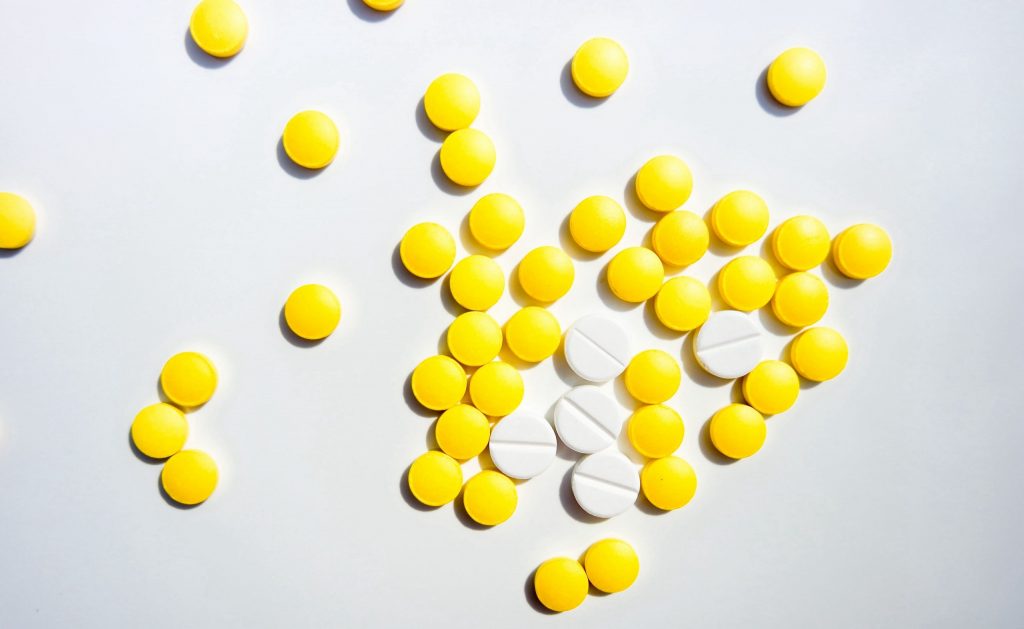PCP, or phencyclidine, is a powerful hallucinogenic drug that can have significant effects on the human body. If you or someone you know has used PCP, you may be wondering how long this drug stays in your system. In this article, we will explore various aspects of PCP and its presence in the body.
Understanding PCP: An Overview
Before we dig deeper into the topic, it is essential to have a clear understanding of what PCP actually is. PCP, or phencyclidine, is a white crystalline powder that was originally developed as an anesthetic in the 1950s. However, due to its severe side effects, it was later discontinued for medical use.
The use of PCP as a recreational drug became popular in the 1960s and 1970s, primarily due to its hallucinogenic properties. It is commonly known by various street names, such as “Angel Dust” or “Sherm.”
What is PCP?
PCP, or phencyclidine, is a dissociative drug that acts as a hallucinogen and tranquilizer. It affects the brain by interfering with the actions of neurotransmitters, especially dopamine, in the central nervous system. This disruption leads to altered perception, hallucinations, and changes in mood and behavior.
PCP can be found in various forms, including powder, pills, and liquid. People usually ingest it orally, smoke it, or dissolve it in a liquid and inject it intravenously. The method of administration can influence how long PCP stays in the system.
The History of PCP
The history of PCP dates back to the 1950s when it was initially developed as an anesthetic. However, due to its severe side effects, including hallucinations, agitation, and violent behavior, medical professionals stopped using it. PCP entered the recreational drug scene in the 1960s and 1970s.
During this time, PCP gained notoriety for its association with violent crimes. Its unpredictable effects on the mind and body made it a challenge for law enforcement and healthcare professionals to deal with.
PCP’s history is not limited to its recreational use. In recent years, researchers have been exploring the potential therapeutic uses of PCP. Studies have shown that low doses of PCP may have antidepressant effects, while higher doses can exacerbate symptoms of mental illnesses such as schizophrenia.
The Effects of PCP on the Human Body
PCP can have a range of effects on the human body, both short-term and long-term. In the short term, PCP can cause hallucinations, distorted perceptions of reality, delusions, and a sense of detachment from oneself and the surroundings. Users may experience changes in mood, anxiety, and confusion.
Long-term use of PCP can have more severe consequences. Chronic PCP use has been associated with memory loss, cognitive impairment, and even psychosis. Additionally, PCP can lead to physical health issues, such as respiratory problems, high blood pressure, and kidney damage.
It is important to note that the effects of PCP on the body can vary from person to person and depend on factors such as dosage, frequency of use, and individual vulnerability.
Researchers are still studying the long-term effects of PCP use and its potential impact on the brain. Understanding how PCP affects the brain’s structure and function can provide valuable insights into developing targeted treatments for substance abuse and mental health disorders.
Furthermore, the use of PCP is not limited to recreational purposes. In some rare cases, PCP has been used as a veterinary anesthetic for animals such as large cats and primates. The dosage and administration of PCP in veterinary medicine are carefully regulated to ensure the safety and well-being of the animals.
In conclusion, PCP is a powerful drug with a complex history and a wide range of effects on the human body. Its recreational use has been associated with significant risks and adverse outcomes. Understanding the science behind PCP and its impact on individuals can help inform prevention efforts, treatment strategies, and public health policies.
How the Body Processes PCP
Once PCP enters the body, it undergoes a series of processes that determine how long it stays in the system. Understanding these processes can help shed light on the factors influencing the presence of PCP in the body.
PCP Absorption and Distribution
After ingestion, PCP is rapidly absorbed into the bloodstream through the gastrointestinal tract or via the lungs when smoked. Once in the bloodstream, it is distributed throughout the body, including the brain, where it exerts its psychoactive effects.
The speed of absorption and distribution can depend on various factors, such as the method of administration, the individual’s metabolism, and the presence of other substances in the body.
PCP Metabolism
The metabolism of PCP primarily occurs in the liver. Here, enzymes break down PCP into various metabolites that can be excreted from the body. The specific metabolic pathways can vary among individuals, influencing the rate at which PCP is eliminated from the system.
PCP Excretion
Once PCP and its metabolites are formed, they are eliminated from the body through various routes, including urine, feces, sweat, and breath. The majority of PCP is excreted unchanged in the urine. The excretion process can take time and can be influenced by factors such as hydration, kidney function, and individual metabolism.
Factors Influencing How Long PCP Stays in Your System
The presence of PCP in the system can vary from person to person. Several factors can influence how long the drug stays in the body and can be detected through tests. Let’s explore some of these factors:
Dosage and Frequency of Use
The dosage and frequency of PCP use can impact how long it remains detectable in the body. Higher doses of PCP can take longer to be eliminated, and frequent use can lead to the accumulation of the drug in the body. Conversely, smaller doses and infrequent use may result in faster clearance.
Individual Metabolism and Health Factors
Individual differences in metabolism play a crucial role in determining how long PCP stays in the system. Metabolism can vary due to factors such as age, genetics, liver function, and overall health. A faster metabolism may result in quicker elimination of PCP from the body.
Health factors, such as kidney function and hydration levels, can also affect PCP excretion. Adequate hydration and healthy kidney function can potentially expedite the elimination process.
The Role of Hydration and Diet
Staying hydrated is essential for the body’s natural detoxification processes. Drinking enough water can help flush out toxins, including PCP and its metabolites, from the body. Additionally, maintaining a balanced diet rich in fruits, vegetables, and fiber can support overall health and assist in efficient metabolism and elimination of drugs.
Detecting PCP in the Body
Various methods can be used to detect the presence of PCP in the body, providing valuable information for medical professionals, employers, and law enforcement. Let’s explore some of these methods:
Urine Tests for PCP
Urine tests are commonly used to detect PCP in the body. These tests can identify PCP and its metabolites in the urine. The detection window for PCP in urine can vary but is typically within a few days to a week following use. However, in chronic users, PCP can be detectable for a longer period.
Blood Tests for PCP
Blood tests can also be used to detect PCP in the body. However, PCP has a relatively short detection window in the blood, typically within 24 to 48 hours after use. Blood tests are more suitable for immediate or recent PCP use, such as in cases of intoxication or accidents.
Hair Tests for PCP
Hair tests provide a longer detection window for PCP. The drug and its metabolites can be detected in hair samples for a significantly longer period, sometimes up to 90 days or more. Hair tests are often used to detect past PCP use, as the drug remains trapped in the hair follicles as they grow.
In conclusion, the presence of PCP in the body and the length of time it stays can vary depending on various factors. Understanding these factors can help individuals, healthcare professionals, and law enforcement agencies assess the use and potential risks associated with PCP. If you or someone you know is struggling with PCP use, seeking professional help is recommended to ensure a safe and healthy recovery.



